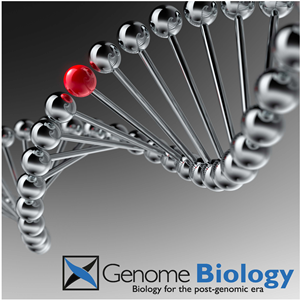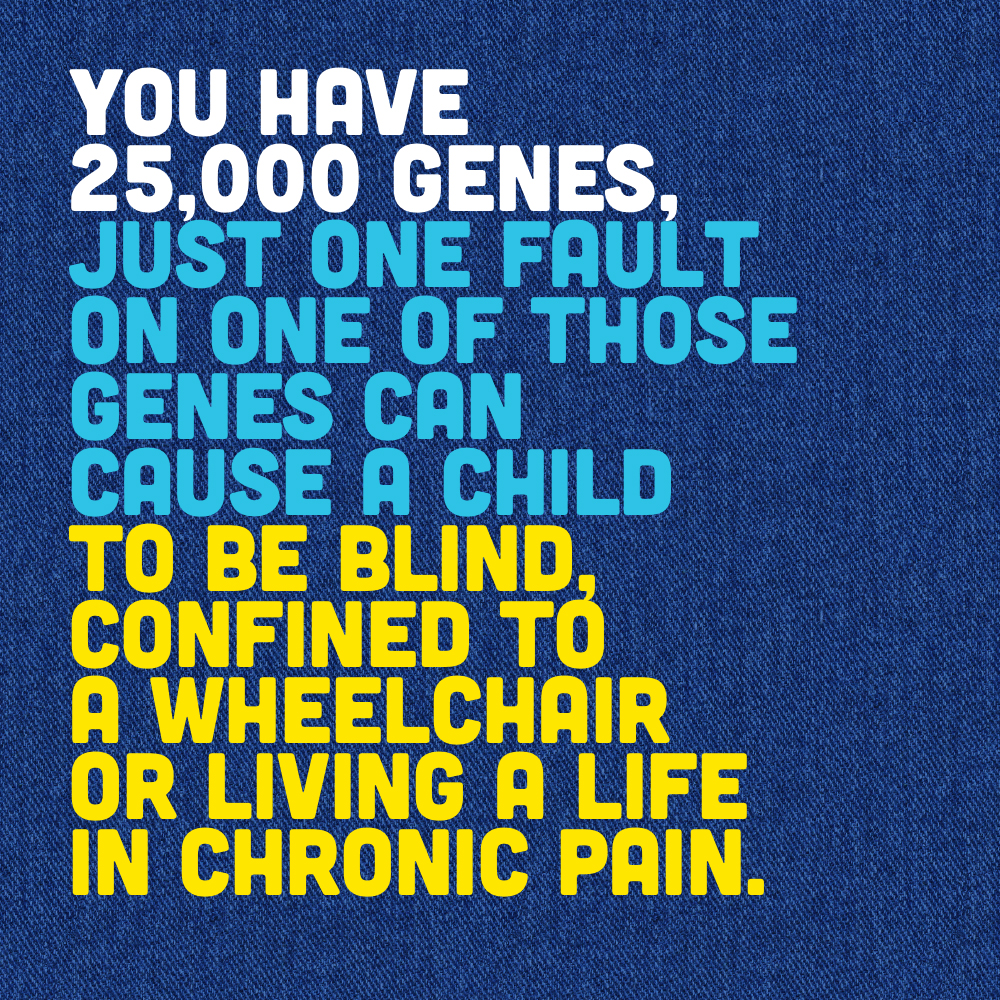
Jeans for Genes Day is an annual fundraising event where the public are encouraged to wear jeans and donate money to, in the United Kingdom, Genetic Disorders UK. The funds raised go towards a range of initiatives that improve the lives of children affected by genetic disorders.
In fact, it’s estimated that 95% of rare diseases do not have a single FDA-approved treatment.
It’s fantastic that there is a high-profile day dedicated to genetic diseases, particularly since, individually, these diseases are rare, and hence often receive less attention. In fact, it’s estimated that 95% of rare diseases do not have a single FDA-approved treatment.
While pharmaceutical funding is increasing towards rare diseases, this demonstrates a clear lack of funds being put towards rare/genetic diseases. Awareness and fundraising events are a great start to generate attention and money to be directed towards these disorders.
Gene therapies, gene editing and epigenome editing
Genetic diseases are currently incurable, and realistically there may be only so much we can do in some cases with regarding to fully curing patients. A rapidly increasing amount of research is going in curative options such gene therapies, and, even more so, gene editing and epigenome editing.
Gene therapy seemed very promising in the 20th Century, however has encountered several major problems just as DNA delivery, expression of delivered genes, and immune reaction to delivery vectors. In addition, only some diseases may be able to benefit from gene therapy. For example, some diseases of the airways and lungs may be good candidates, such as cystic fibrosis, since genes need to be delivered to easily accessible cells in the mucosa.

Genome editing is now looking like a more promising technique, using techniques such as zinc finger proteins, TALEs, and more recently the CRISPR/Cas9 system. The field was launched to attention of scientists particularly by the work of Jenifer Doudna and Emmanuelle Charpentier. The recent Genome Biology special issue “Genome editing” gives a nice summary of some of the recent insights in this exciting field.
Other research is looking at epigenetic diseases. The interesting thing here, and what significantly differs from genetic diseases, is that these are potentially reversible. This is because epigenetic changes involve DNA modifications which do not permanently change the DNA, but rather make molecular changes. For example, a methyl group attached to a DNA base may be causing a disease, however it could potentially be removed to ‘demethylate’ the DNA back to its ‘normal’ form.
Rett Syndrome is an example of an active area of research here. Rett syndrome is a life-limiting neurological genetic disorder and the most common cause of profound learning disability affecting girls. This disease is caused by mutations of the MeCP2 gene, a transcriptional activator. Animal model studies have shown encouraging results, where symptoms are dramatically improved, even in late stage of the disease.
So future potential cures are very exciting to learn about. However, in the absence of access to these in the present time, it’s important to maintain focus on keeping genetic disease sufferers comfortable, and supporting and educating their families.
Rare disease charities
 Jeans for Genes day donates money to causes for several different rare diseases. Funds raised in the UK on the day go towards a grant program at Genetic Disorders UK – you can find the details for it on their website. Here are just a few of the rare-disease charities that received grants from Jeans for Genes Day UK funds raised in 2016:
Jeans for Genes day donates money to causes for several different rare diseases. Funds raised in the UK on the day go towards a grant program at Genetic Disorders UK – you can find the details for it on their website. Here are just a few of the rare-disease charities that received grants from Jeans for Genes Day UK funds raised in 2016:
Barth syndrome is a rare, life-threatening X-linked disorder, meaning that it only affects boys. Affected children have an enlarged and weakened heart, which means they are at risk of sudden cardiac arrest, suffer from muscle weakness and extreme fatigue, experience feeding and growth problems, and have recurrent infections owing to low levels of white blood cells.
This article published in Orphanet Journal of Rare Diseases revealed 5 new mutations in Barth Syndrome, making it easier to diagnose and make a prognosis for this disease.
Fragile X syndrome is the most common inherited genetic disorder causing learning disability. Children living with Fragile X typically experience developmental delay, anxiety and hyperactive behaviors, and may face lifelong challenges with communication and social interaction.
Reversal of genetic disease symptoms through pharmacological means is a growing area of research. This study showed in an animal model of Fragile X syndrome that stimulation of BKCa channels can rescue a broad spectrum of behavioral impairments.
Funny lumps raise funds for neurofibromatosis, a relatively well-studied rare disease, characterized by the development of multiple schwannomas and meningiomas. This review gives a clinical and molecular update on the disease.
A rare autosomal dominant disease characterized by short stature, typical facial dysmorphology and congenital heart defects. Affected children may also suffer from delayed intellectual development and behavioral problems. This review outlines the etiology, treatment and care needed by people with the disease.
Prader-Willi syndrome is a complex neurodevelopmental disorder arising from a lack expression of paternally imprinted genes in the 15q11-q12 chromosomal region. The disease affects many parts of the body. Affected children live with weak muscle tone, delayed physical and emotional development, and constant hunger which, if not controlled, will lead to chronic overeating and life-threatening obesity.
This study demonstrated that infants with Prader-Willi syndrome in fact show signs of anorexia, leading to a theory that this switch in hunger levels is related to a change in the ratio of acetylated:unacetylated ghrelin.
In conclusion…
While there is active research looking into understanding the underlying cause of these diseases, most of these grants go to important causes such as activities and support for families with children with rare disease. The hope is that one day molecular and sequencing knowledge will lead to new therapies and cures. In the meantime, funding for causes that tackle diseases from every angle will ensure that we’re benefiting both current and future rare-disease sufferers.
Awareness of genetic disorders is higher than it’s ever been, and it’s great to see charities and grants dedicated to diseases that have a life-changing impact on a relatively small number of people; though in the UK 1/25 children are born with a genetic disease, so collectively, they are not rare.
Sam Rose
Latest posts by Sam Rose (see all)
- Raising funds for genetic diseases - 23rd September 2016
- The Epigenetics and Chromatin Clinic - 9th November 2015
- Resurrecting one of the oldest genetics journals - 23rd October 2015
One Comment